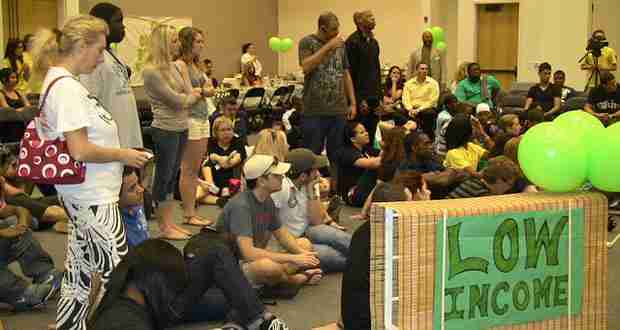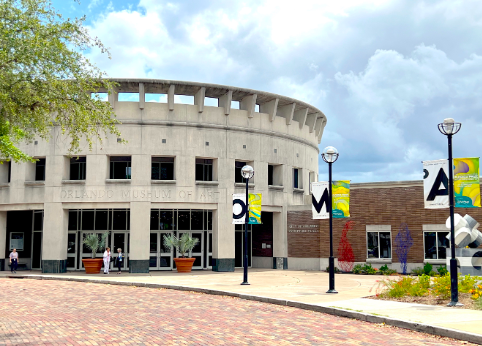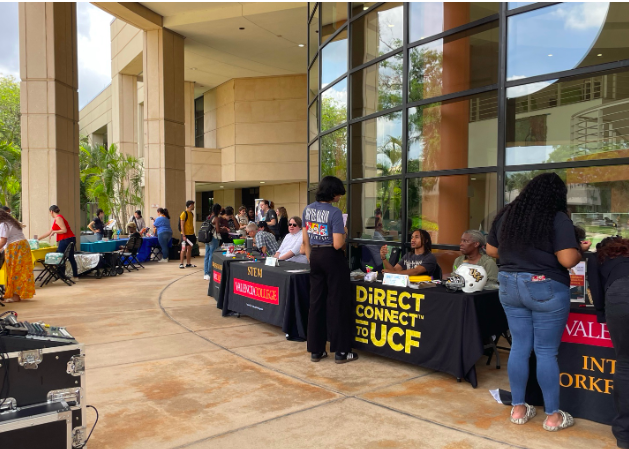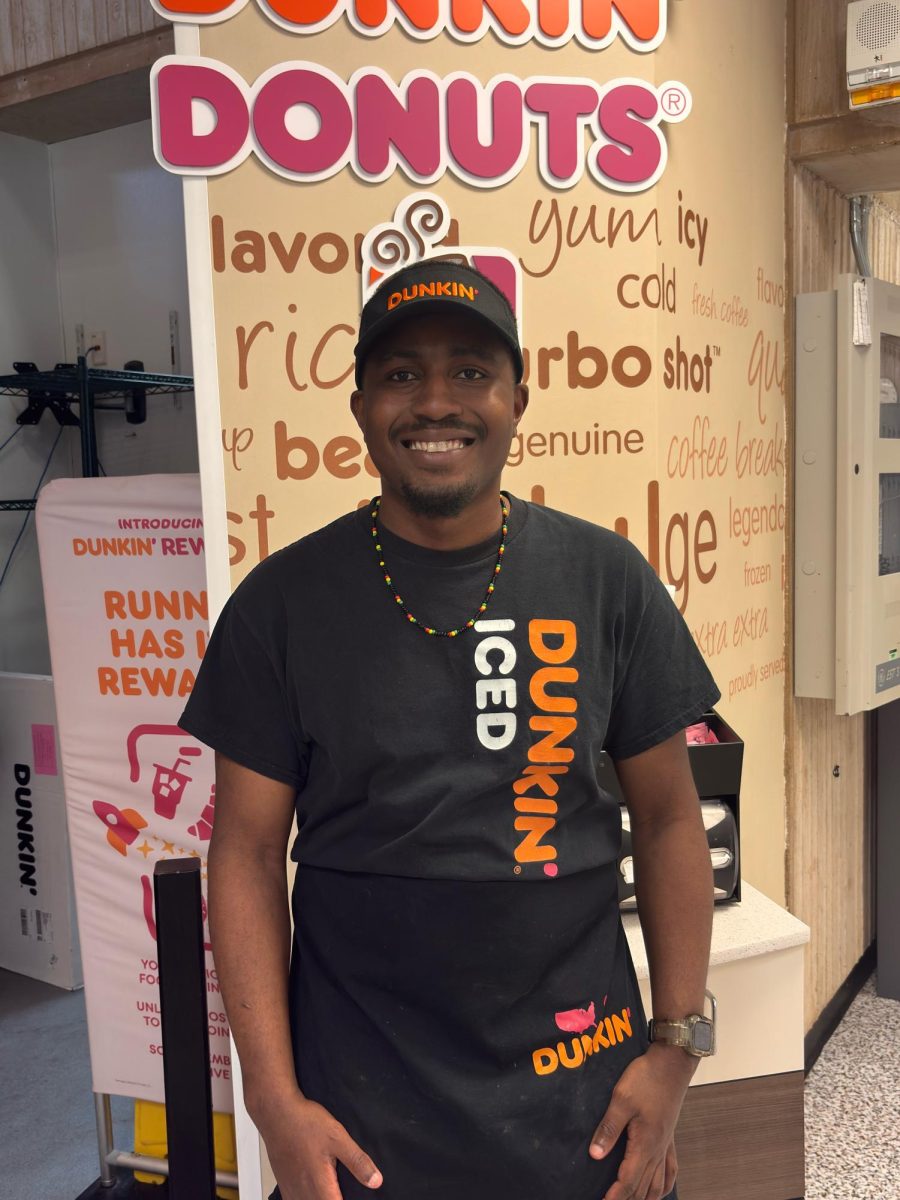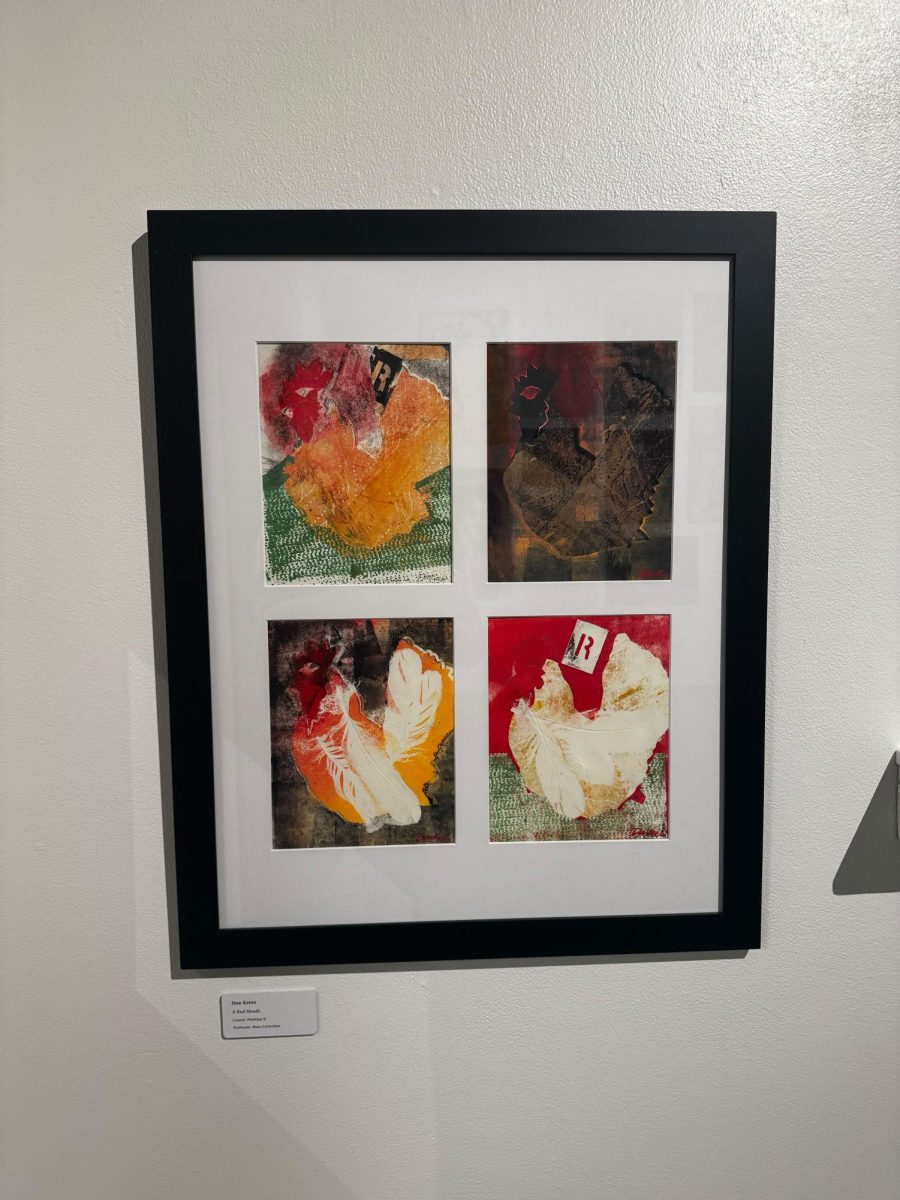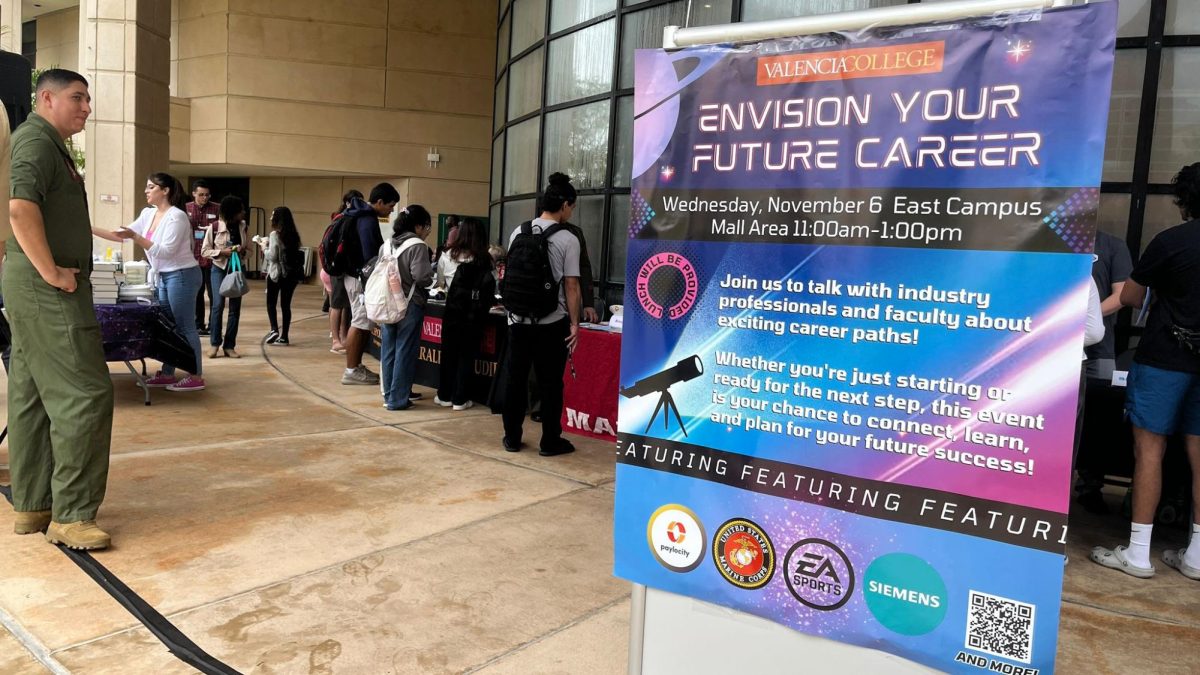“Draw your fate,” the H.E.R.O. crew said, holding bags to participants as they walked into the Oxfam hunger banquet on Thursday, Nov. 11.
Students drew cards with one of three classifications; high income, middle income, or low income, and took their places in the room according to their class.
A lucky 15 percent were welcomed to the high class fine- dining table. Seated in chairs around the room was the middle class, representing 33 percent of the diners. More than half of the participants sat on the floor as low income citizens.
Six lucky low income students were moved to middle class, representatives of real-life people whose stories were shared with the audience. The six represented a group of Mexican workers whose ingenuity and hard work enabled them to start go into business for themselves and quit the factory and farm labor. No one from the high income group was moved.
For the fortunate six whose lives improved, there were six middle class students who moved to the floor to join to low income group. Two represented African women who operated farms in Ethiopia. One, who did not own her land, was forced off when the government sold it to a Canadian gold mining company. The other was pushed into poverty when the corporation’s factory polluted the water, poisoning her cows and goats.
“Poverty does not give a damn who you are,” said Subhas Rampersaud, professor of social sciences at Valencia’s West Campus. “Tomorrow we are going to get up and eat; that is what we do every day. We have no idea what poverty is. Poverty here is relative.”
A slide show at the end of the presentation showed pictures of the men and women whose stories were played out by the students representing them, along with happier stories of people who have been helped by Oxfam’s programs.
Oxfam, started in 1955, is an international confederation of non-profit organizations that works to end hunger, poverty, and social injustice. The idea for the hunger banquet came to Valencia when Valencia Honors students attended an impact conference held by the organization.
“This event is a metaphor for how food and resources are distributed throughout the world,” said Honors president Diana Lawrie. “Everyone has the same needs. It is only our circumstances which differ.”
Representative speakers from all the major Valencia groups worked to educate students about hunger and mistreatment from around the world. In this modern age with bountiful resources a child dies from hunger of preventable diseases every four seconds or 22,000 per day on average.
“This whole project was part of a bigger project, about bringing awareness about hunger, poverty, and homelessness” said Diana Lawrie, co-president of H.E.R.O (Human Empathy and Rights Organization.) This Valencia group works to inspire action from students and others about different global injustices like sex trafficking and children’s rights.
This event was based around another strong belief of the groups; to end hunger locally through the Homeless Coalition of Florida and internationally through the Oxfam organization. An international confederation of 98 countries working to find lasting solutions to hunger and injustice around the world.
“We’re trying to bring awareness of whats going on in other areas around the world, and about hunger in the lower class” said David Rosado Jr. student government president for Valencia’s Osceola campus.
A meal of salads, pasta with meat and veggies, and gourmet cake for dessert, was served on a silver platter to the high class, while poor had to eat rice and water with a forced rule of woman eating last. As time went on, some people still hadn’t eaten, and much of the food for the high and middle classes was left for waste.
“It made me actually feel guilty about sitting in the high income section, so I gave up my seat “ said Kris Boodooram a second year international business major. The students who crossed class lines volunteered by standing up, without knowing their fate. Once some middle class dwellers were forced to leave their chairs, attendees were reluctant to participate.
“I was disappointed in the people that didn’t stand up,” said Leonidez Santiago, who shared in the plain rice and water with others seated in the low income section. “If you’re not standing up it is because you are afraid of losing what you have.”
“Poverty exists, and just because you don’t see it doesn’t mean it doesn’t exist,” said Victoria Hoa a member of SGA,PTK, and also a member and presenter for H.E.R.O’S. She recently worked with her church to help rebuild a flooded community in Costa Rica. “If everyone worked to help others, they would understand that every little bit makes a difference.“
Event coordinators urged students to think seriously about the reality of the situation, and encouraged those in attendance to turn awareness into action. A petition was available for to sign in support of legislation funding organizations that fight homelessness and charity.
“This event is simulated, but this is the reality for 2.5 billion out of 7 billion living in poverty,” said Rampersaud. “Each of us has a choice. We can stay insulated, but little good will be served if you leave here only with memories.”

